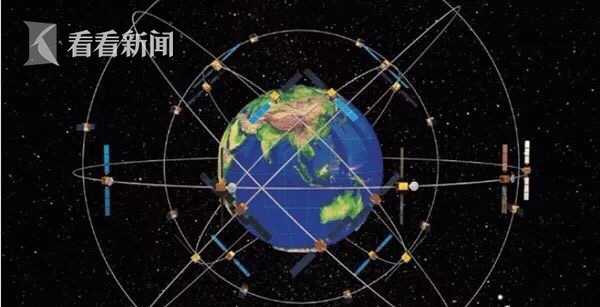
1. System stability refers to 1 System stability refers to a certain stable state shown by system elements under external influence. Its meanings are roughly divided into the following three categories: (1), external temperature, mechanical and other various changes, which do not have a significant impact on the state of the system.
2. The so-called system stability refers to the performance of the system recovering from the initial deviation state to the original equilibrium state after the disturbance disappears. In classical control theory, the sufficient necessary condition for system stability is that when time tends to infinity, the unit pulse of the system is correspondingly equal to zero.
3. It means that when the system is disturbed, it deviates from the original equilibrium state, and when the disturbance disappears, the system can gradually return to the original equilibrium state, which means that the system is stable.
The so-called system stability refers to the performance of the system recovering from the initial deviation state to the original equilibrium state after the disturbance disappears. In classical control theory, the sufficient necessary condition for system stability is that when time tends to infinity, the unit pulse of the system is correspondingly equal to zero.
Then the number of Z of the closed-loop right poles of the system is: Z=N+P. When Z=0, the system is stable; when Z0, the system is unstable.
The stability of a linear system is the main performance indicator of the system. The methods for judging the stability of a linear system include algebraic method, root trajectory method and Nyquist judgment method.
Stable, which shows that this kind of system has good security and will not often crash. It is very mature, but the openness is poor. The most stable system in the world is MSDOS, but its openness is very poor. There are many restrictions. Now it is a personal operation to say that the system is stable.
What does system stability mean? 1 System stability refers to a certain stable state shown by system elements under external influence. Its meanings are roughly divided into the following three categories: external temperature, mechanical and other changes, which do not have a significant impact on the state of the system.

The stability of the system refers to 1 system stability refers to a certain stable state of system elements under the influence of the outside world. Its meanings are roughly divided into the following three categories: (1), external temperature, mechanical and other various changes, which do not have a significant impact on the state of the system.
It means that when the system is disturbed, it deviates from the original equilibrium state, and when the disturbance disappears, the system can gradually return to the original equilibrium state, which means that the system is stable.
The so-called system stability refers to the performance of the system to recover from the initial deviation state to the original equilibrium state after the disturbance disappears. In classical control theory, the sufficient necessary condition for system stability is that when time tends to infinity, the unit pulse of the system is correspondingly equal to zero.
The stability of a linear system is the main performance indicator of the system. The methods for judging the stability of a linear system include algebraic method, root trajectory method and Nyquist judgment method.
System stability refers to the performance of the system that can gradually recover to its original equilibrium after being disturbed by external disturbances. If the system can gradually restore balance through self-regulation after the disturbance disappears, it means that the system is stable.
System stability refers to a certain stable state shown by system elements under external influence. It containsThere are roughly the following three categories: (1), external temperature, mechanical and other changes, which do not have a significant impact on the state of the system.
System stability refers to the performance that the system can gradually recover to its original equilibrium state after being disturbed by external disturbances. If the system can gradually restore balance through self-regulation after the disturbance disappears, it means that the system is stable.
System Stability Definition 1 System stability refers to a certain stable state shown by system elements under external influence. Its meanings are roughly divided into the following three categories: (1) External temperature, mechanical and other changes do not have a significant impact on the state of the system.
The so-called system stability refers to the performance of the system to recover from the initial deviation state to the original equilibrium state after the disturbance disappears. In classical control theory, the sufficient necessary condition for system stability is that when time tends to infinity, the unit pulse of the system is correspondingly equal to zero.
Binance app download Play Store-APP, download it now, new users will receive a novice gift pack.
1. System stability refers to 1 System stability refers to a certain stable state shown by system elements under external influence. Its meanings are roughly divided into the following three categories: (1), external temperature, mechanical and other various changes, which do not have a significant impact on the state of the system.
2. The so-called system stability refers to the performance of the system recovering from the initial deviation state to the original equilibrium state after the disturbance disappears. In classical control theory, the sufficient necessary condition for system stability is that when time tends to infinity, the unit pulse of the system is correspondingly equal to zero.
3. It means that when the system is disturbed, it deviates from the original equilibrium state, and when the disturbance disappears, the system can gradually return to the original equilibrium state, which means that the system is stable.
The so-called system stability refers to the performance of the system recovering from the initial deviation state to the original equilibrium state after the disturbance disappears. In classical control theory, the sufficient necessary condition for system stability is that when time tends to infinity, the unit pulse of the system is correspondingly equal to zero.
Then the number of Z of the closed-loop right poles of the system is: Z=N+P. When Z=0, the system is stable; when Z0, the system is unstable.
The stability of a linear system is the main performance indicator of the system. The methods for judging the stability of a linear system include algebraic method, root trajectory method and Nyquist judgment method.
Stable, which shows that this kind of system has good security and will not often crash. It is very mature, but the openness is poor. The most stable system in the world is MSDOS, but its openness is very poor. There are many restrictions. Now it is a personal operation to say that the system is stable.
What does system stability mean? 1 System stability refers to a certain stable state shown by system elements under external influence. Its meanings are roughly divided into the following three categories: external temperature, mechanical and other changes, which do not have a significant impact on the state of the system.

The stability of the system refers to 1 system stability refers to a certain stable state of system elements under the influence of the outside world. Its meanings are roughly divided into the following three categories: (1), external temperature, mechanical and other various changes, which do not have a significant impact on the state of the system.
It means that when the system is disturbed, it deviates from the original equilibrium state, and when the disturbance disappears, the system can gradually return to the original equilibrium state, which means that the system is stable.
The so-called system stability refers to the performance of the system to recover from the initial deviation state to the original equilibrium state after the disturbance disappears. In classical control theory, the sufficient necessary condition for system stability is that when time tends to infinity, the unit pulse of the system is correspondingly equal to zero.
The stability of a linear system is the main performance indicator of the system. The methods for judging the stability of a linear system include algebraic method, root trajectory method and Nyquist judgment method.
System stability refers to the performance of the system that can gradually recover to its original equilibrium after being disturbed by external disturbances. If the system can gradually restore balance through self-regulation after the disturbance disappears, it means that the system is stable.
System stability refers to a certain stable state shown by system elements under external influence. It containsThere are roughly the following three categories: (1), external temperature, mechanical and other changes, which do not have a significant impact on the state of the system.
System stability refers to the performance that the system can gradually recover to its original equilibrium state after being disturbed by external disturbances. If the system can gradually restore balance through self-regulation after the disturbance disappears, it means that the system is stable.
System Stability Definition 1 System stability refers to a certain stable state shown by system elements under external influence. Its meanings are roughly divided into the following three categories: (1) External temperature, mechanical and other changes do not have a significant impact on the state of the system.
The so-called system stability refers to the performance of the system to recover from the initial deviation state to the original equilibrium state after the disturbance disappears. In classical control theory, the sufficient necessary condition for system stability is that when time tends to infinity, the unit pulse of the system is correspondingly equal to zero.
OKX Wallet app download for Android
author: 2025-02-02 21:08Binance app download Play Store
author: 2025-02-02 19:57 Binance login
Binance login
398.46MB
Check Binance Download for PC Windows 10
Binance Download for PC Windows 10
817.59MB
Check OKX Wallet apk download
OKX Wallet apk download
654.91MB
Check okx.com login
okx.com login
372.43MB
Check Binance US
Binance US
158.64MB
Check Binance US
Binance US
779.92MB
Check Binance wallet
Binance wallet
778.56MB
Check OKX Wallet extension
OKX Wallet extension
568.34MB
Check Binance US
Binance US
456.47MB
Check Binance download Android
Binance download Android
278.34MB
Check Binance download
Binance download
255.56MB
Check OKX Wallet extension
OKX Wallet extension
718.86MB
Check Binance US
Binance US
838.13MB
Check OKX Wallet APK
OKX Wallet APK
483.42MB
Check Binance download APK
Binance download APK
662.82MB
Check OKX review
OKX review
326.14MB
Check Binance exchange
Binance exchange
732.38MB
Check OKX Wallet APK
OKX Wallet APK
334.65MB
Check Binance login App
Binance login App
749.75MB
Check Binance login App
Binance login App
873.43MB
Check Binance login
Binance login
482.69MB
Check OKX Wallet
OKX Wallet
665.41MB
Check OKX Wallet
OKX Wallet
827.93MB
Check okx.com login
okx.com login
736.38MB
Check Binance app download Play Store
Binance app download Play Store
211.79MB
Check Binance US
Binance US
224.68MB
Check OKX Wallet login
OKX Wallet login
969.54MB
Check Okx app download
Okx app download
695.45MB
Check OKX Wallet download
OKX Wallet download
421.74MB
Check Binance download
Binance download
525.46MB
Check OKX Wallet to exchange
OKX Wallet to exchange
557.67MB
Check Binance download APK
Binance download APK
792.89MB
Check Binance login
Binance login
519.92MB
Check Binance login App
Binance login App
669.42MB
Check OKX Wallet APK
OKX Wallet APK
349.94MB
Check Binance download APK
Binance download APK
352.78MB
Check
Scan to install
Binance app download Play Store to discover more
Netizen comments More
1726 黯然无色网
2025-02-02 21:32 recommend
2657 搬唇递舌网
2025-02-02 21:28 recommend
1350 亦复如是网
2025-02-02 20:38 recommend
1119 有口无心网
2025-02-02 19:37 recommend
117 寸步不让网
2025-02-02 19:37 recommend